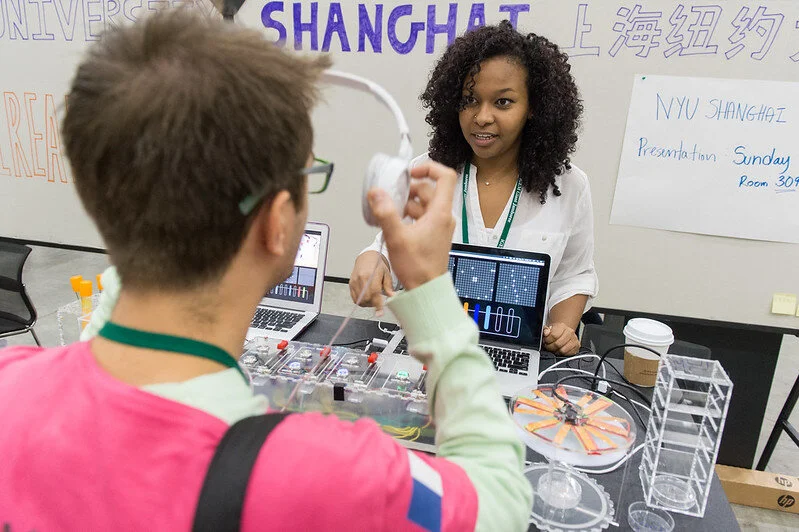Lessons shared by iGEM 2020 Teams: Tips and Timelines
by Traci Haddock-Angelli, Kitwa Ng and Tessa Alexanian on behalf of iGEM Headquarters
We often say “iGEM isn’t easy, but it’s worth it”. But how do different iGEM teams, all over the world, rise to the challenge? In this blog post and on our new Tips for Teams page, we’d like to share some of the wisdom we received from the iGEM 2020 teams, so the 2021 and future teams can learn from last year’s lessons.
During February and March, we reached out to the iGEM 2020 teams to ask about their experiences. We learned so much during these conversations―about how teams planned their projects, organized themselves, and stayed connected with each other.
Tips for Teams
One of the biggest take-away lessons the iGEM 2020 teams shared was this: things take longer than you expect. This included the work needed for the medals and competition deliverables (the wiki in particular takes a lot of time!), as well as the time and energy needed for fundraising efforts and Human Practices work.
One of the things you’ll want to allocate plenty of time for is the design phase of your project, which includes researching the problem you’re focusing on. Many teams mentioned that this research helped them determine if synthetic biology was a good solution to the problem they wanted to solve. It’s important to realize that sometimes the answer will be no! You should be prepared to pivot to another problem if that happens.
Team structure varied a lot, but a few themes overlapped regardless of the final structure. Key themes included deciding on a team management style together (don’t be afraid to try out different styles!), determining individual team member responsibilities, and keeping track of the action items and objectives throughout the season. Connecting with each other was also a key theme, whether it was through weekly team meetings or through fun social activities like Zoom Paint Night.
Timelines may vary
On the Navigating iGEM page, you’ll find the iGEM cycle, which represents the general flow of tasks involved in iGEM. Of course, the cycle varies tremendously across teams! When we spoke to the 2020 teams, we learned they had followed very diverse timelines. In the figure below you can see timelines for key tasks from some of 2020 teams. (Mind you, 2020 was an especially weird year. Due to the pandemic, many teams were unable to start lab work until very late in the season, and many others were unable to work together in person at all.)
At left: the iGEM cycle. At right: the diverse timelines shared by several of the 2020 teams we interviewed. Source: https://2021.igem.org/Resources/Navigating_iGEM
You can also find some data on the various tasks that iGEMers were working on in June and September gathered through the iGEM TIES (Team IntEraction Study) project. In 2020, iGEM TIES collected self-reported team collaborations using the CoSo app in order to explore how team interactions, collaborations, diversity and transdisciplinarity impact their performance and the learning experience of the team members.
iGEM 2020 teams self-reported what they were working on between mid-June and mid-September. You can see a trend towards less data collection and more presentation preparation as the Giant Jamboree approached. Source: https://igem-ties.info/visualization/
Doing iGEM your way
With all of these variations across iGEM teams, one thing is clear: there is no “right way” to do iGEM for everyone. Some teams begin their projects in November, while others start in June. Some teams have less than 5 members, while others have over 50. And of course, iGEM teams hail from many universities, high schools, and community labs across the world. Whatever the size or composition of your team, you need to find the best way for your team to work together.
We hope this post highlighted the diversity of how teams approach iGEM, and passed on the useful insights from our 2020 alumni. Every year we learn something new from our teams, and we’re excited to see what 2021 teaches us!
What can you do now?
Join the iGEM 2021 Global Slack and share what’s working well (or not so well) for your team! The Slack can help you connect with your fellow iGEM community members and learn from each other;
If your team could use some extra help navigating iGEM, apply to the Mentorship Program! It’s open to all teams, but preference will be given to teams in their first- or second-year competing, who had a gap year, or who have traditionally not done well in past competitions;
Participate in this year’s iGEM TIES project! You’ll get visualization of your team’s work during the competition. The latest CoSo app is available now, and you can contact igem-ties [AT] cri-paris [DOT] org if you have questions or want to get involved in the study!
Special thanks to all of the 2020 teams who took time in February and March to talk with us and answer our survey. Your feedback is helping make iGEM better, and we appreciate all the wisdom you shared!










